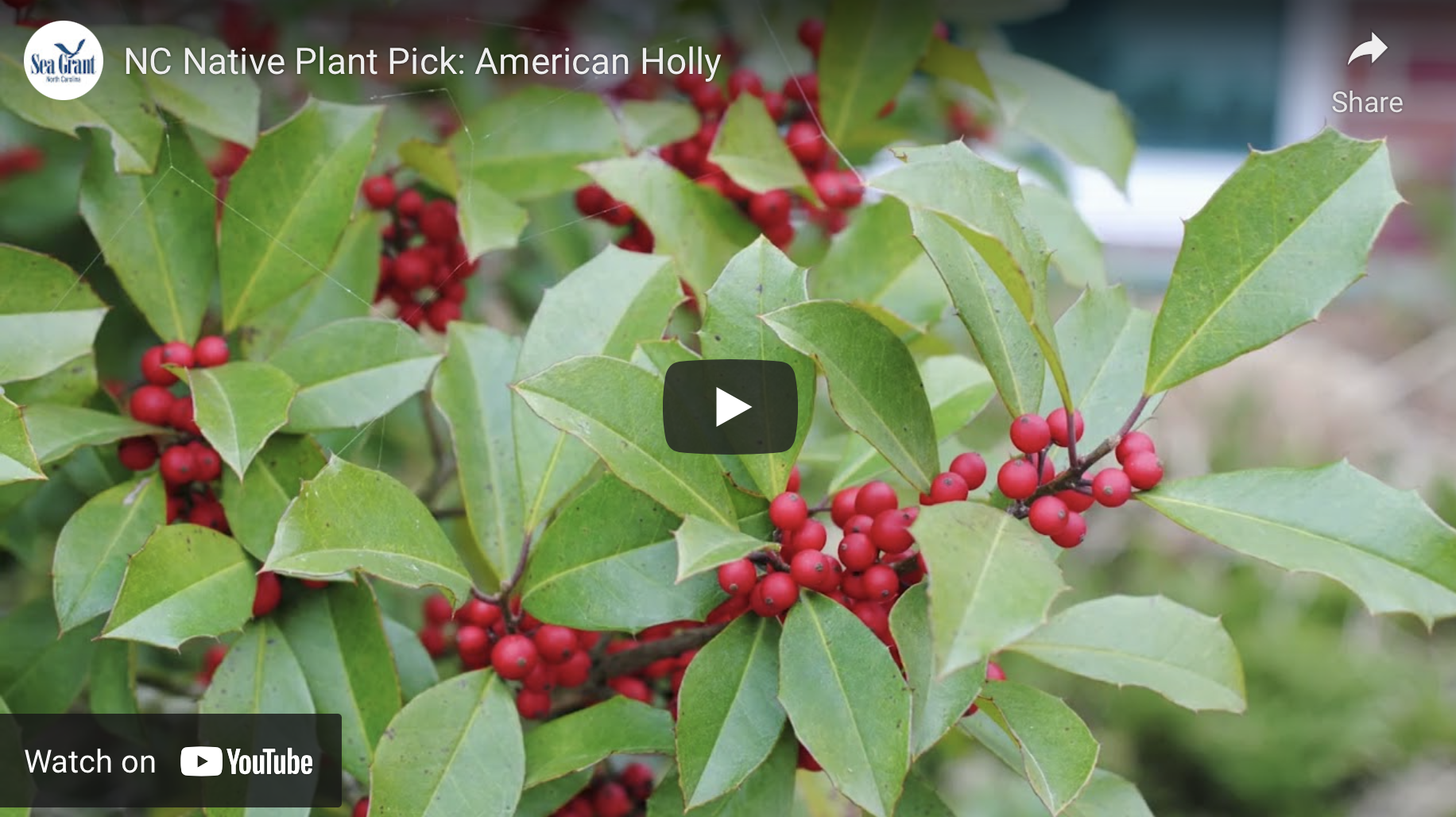Coastal Currents
Coastal Currents
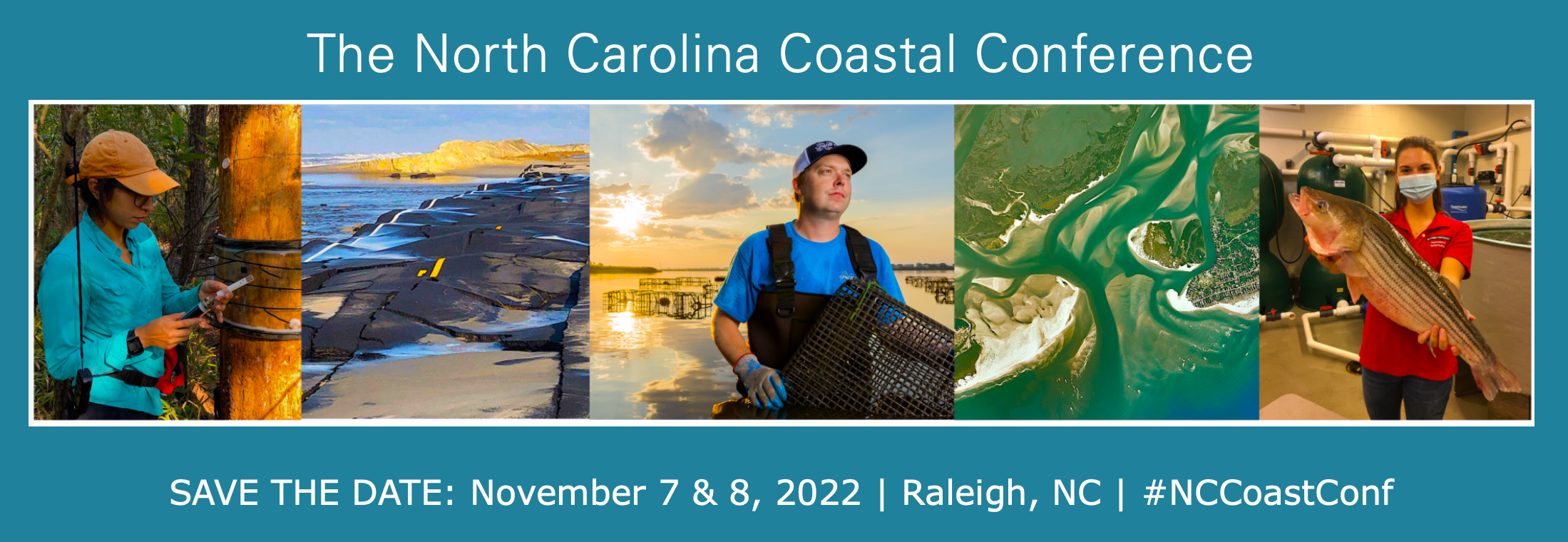 NC Coastal Conference Set for November
NC Coastal Conference Set for November
North Carolina Sea Grant will host the North Carolina Coastal Conference on November 7 and 8 this year at NC State University in Raleigh.
“We’re looking forward to gathering researchers, agency and business experts, community leaders, students, and all who are interested in coastal topics for these engaging presentations and discussions,” says Susan White, executive director of North Carolina Sea Grant.
Members of the Sea Grant team, its advisory board, and various partners are planning the event. The University of North Carolina System already has signed on as a sponsor.
The conference will include in-person and hybrid sessions, featuring presentations on a wide range of issues related to coastal communities and ecosystems, including the watersheds that feed coastal waters.
“We will have invited speakers, as well as an abstract submission process for presentations, lightning talks, and a student poster competition,” adds John Fear, North Carolina Sea Grant’s deputy director. Sea Grant is accepting abstracts for talks and posters until September 2.
For updates, watch for the hashtag #NCCoastConf on social media, and check the conference website for information about registration, submitting proposals for posters and presentations, becoming a sponsor, and other details.
— Carrie Clower
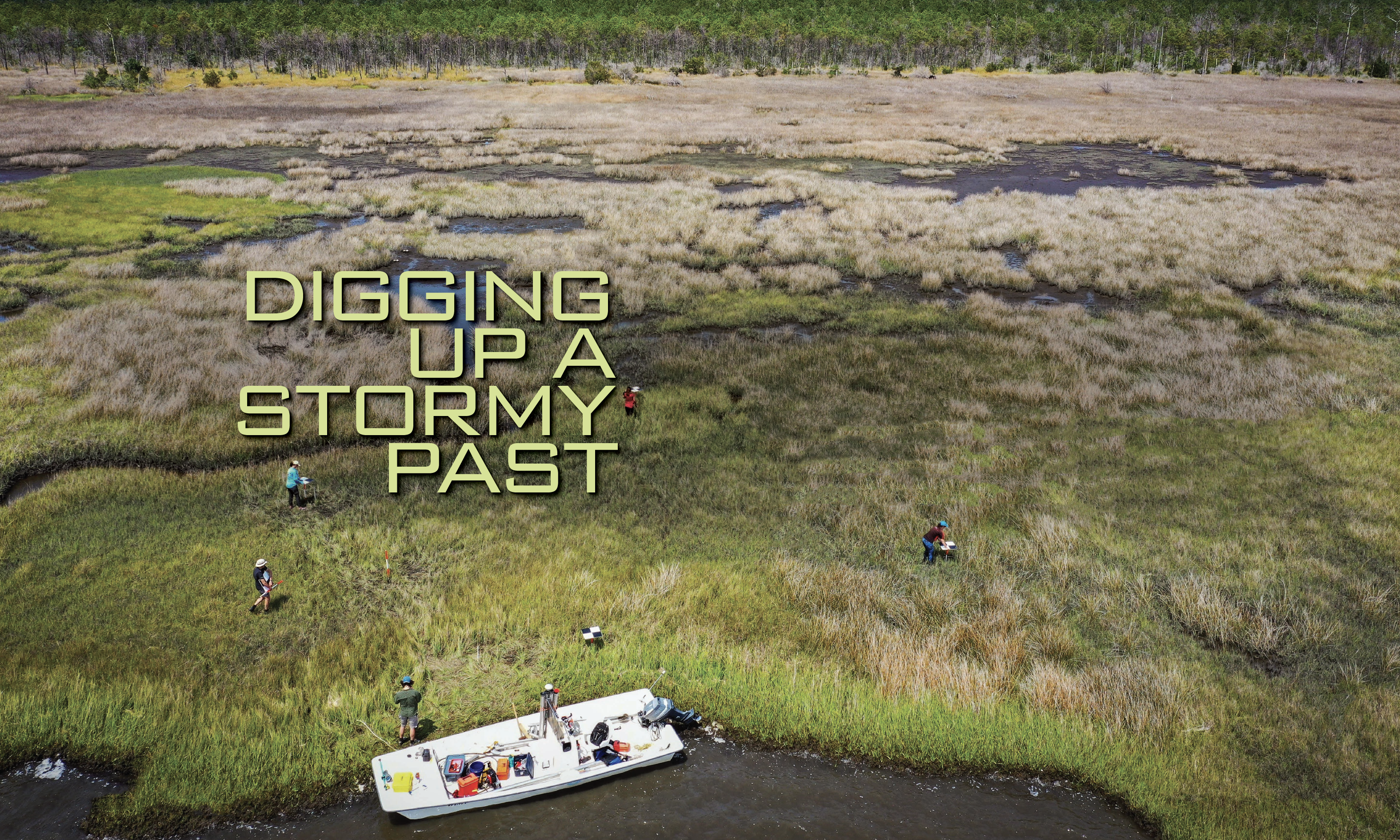
NC Sea Grant Announces 2022–2024 Core Research Projects
Research teams across the state recently have begun work on North Carolina Sea Grant’s new core projects. Scientists are applying innovative approaches to coastal resilience, climate change, flooding, disaster recovery, sustainable fisheries and aquaculture, environmental literacy, and more.
“Our core research examines real-world needs of our coastal communities and ecosystems,” says Susan White, executive director of North Carolina Sea Grant. “We are pleased to have so many multidisciplinary collaborations that address our program’s strategic focus areas.”
The projects include lead researchers from NC State University, the University of North Carolina at Chapel Hill, East Carolina University, and the University of North Carolina Wilmington. In addition, Chowan University, Duke University, Rural Forward NC, Audubon NC, and state agency partners play key roles. Most projects provide student support and training opportunities.
The following studies will run through early 2024:
- Assessing Long-Term Water Temperature Patterns in North Carolina Estuaries: A Key for Gauging and Predicting Ecosystem Health in an Era of Global Change—Joel Fodrie, University of North Carolina at Chapel Hill, principal investigator
- Trickle-Down Effects of Increasing Coastal Sediment Loads on Tidal-Creek Levee Morphology, Salt-Marsh Platform Accretion, and Resilience to Sea-Level Rise Since AD 1900—Antonio Rodriguez, University of North Carolina at Chapel Hill, principal investigator
- Identifying the Drivers of Chronic Coastal Flooding: A Community-Centric Approach— Katherine Anarde, North Carolina State University, principal investigator
- JustWater: Policy Leadership and Environmental Justice During Disaster Recovery—Bethany Cutts, North Carolina State University, principal investigator
- Assessing Spatial and Temporal Controls on Sediment Transport in Currituck Sound—David Lagomasino, East Carolina University, principal investigator
- Understanding the Effects of a Newly Discovered Trematode Parasite on Wild and Cultured Bay Scallop Production—Julia Buck, University of North Carolina Wilmington, principal investigator
- Potential Impacts of Marine Dredging on Key Commercial and Recreational Fish and Shellfish: Informing Decisions Regarding Mitigation and Seasonal Closures of Dredging to Maintain North Carolina’s State Ports—David Eggleston, North Carolina State University, principal investigator
- Assessing Influence of Sea-Level Rise Induced Salt Intrusion and Associated Circulation Change on Southern Flounder Recruitment Processes in Albemarle-Pamlico Sound— Qianqian Liu, University of North Carolina Wilmington, principal investigator
- Multi-Trophic Waste Management for Finfish Mariculture in Land-Based Recirculating Aquaculture Systems Using the Salt-Tolerant Halophyte Salicornia virginica — Wade Watanabe, University of North Carolina Wilmington, principal investigator
- Developing a Model for Supporting Coastal Resilience through Youth-Led Coproduction—Kathryn Stevenson, North Carolina State University, principal investigator
For updates, follow North Carolina Sea Grant’s Twitter and Facebook feeds, and check back here.
funding opportunities at North Carolina Sea Grant
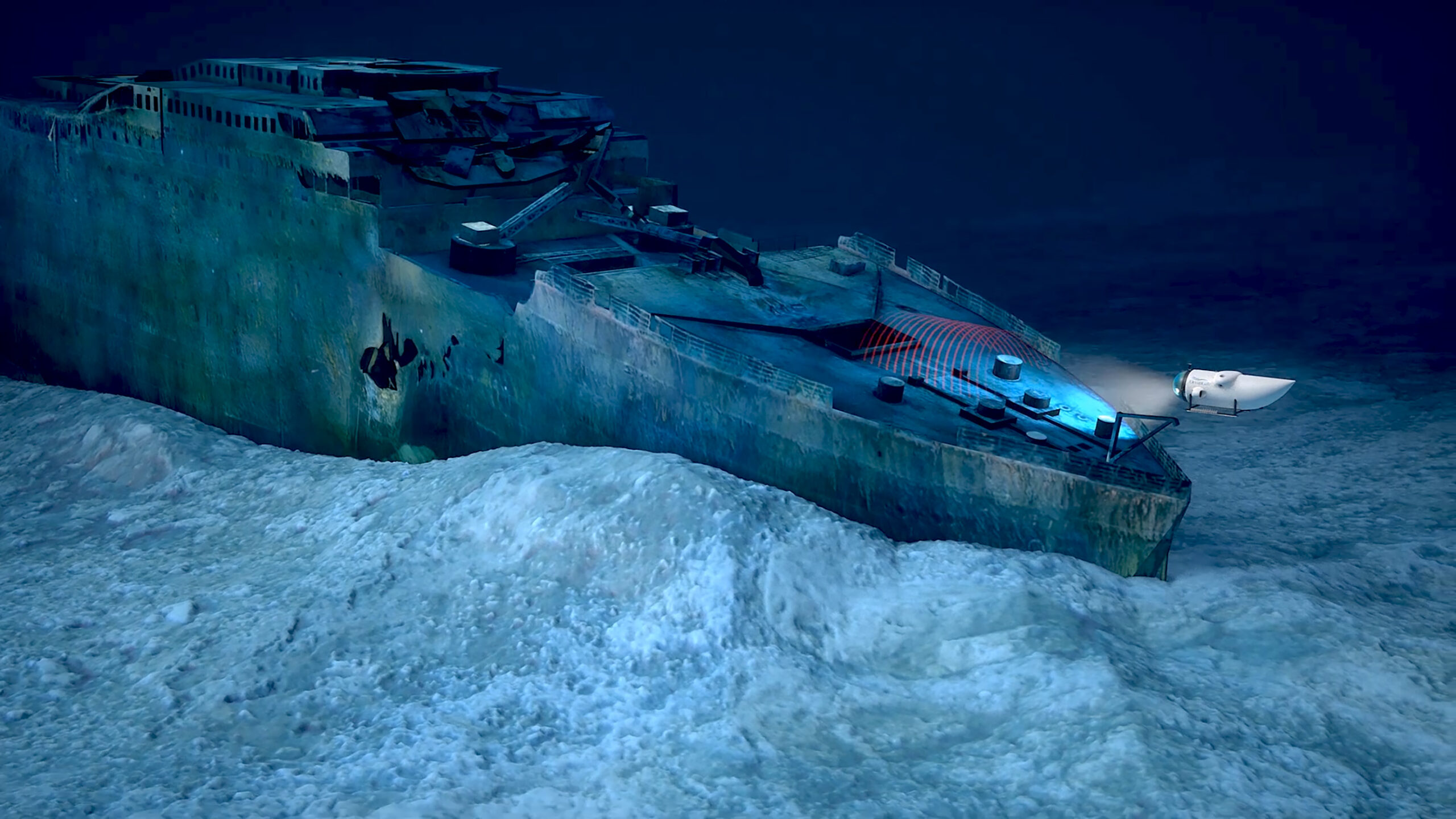
Expedition Explores the Titanic’s Deep-Sea Ecosystem
Steve W. Ross will lead an international team of scientists this summer in a first-of-its-kind survey of marine life at the Titanic shipwreck.
“We are seeking to compile a list of every living creature we can identify inhabiting the Titanic wreck site to understand this unique deep-sea ecosystem,” says Ross, who specializes in corals, fish, and submarine canyons for the University of North Carolina Wilmington’s Center for Marine Science.
OceanGate Expeditions of Nassau, Bahamas, is commissioning the 2022 Titanic Survey Expedition. The British luxury passenger ship sank during its maiden voyage in 1912 and rests over two miles deep off the coast of Newfoundland. Today, the ship serves as a refuge for corals, squat lobsters, brittle stars, and rattail fish.
Ross, whose previous research has included support from North Carolina Sea Grant and NOAA, will collect HD video and photography, conduct environmental DNA analysis, and gather other data. His team will descend to the site in OceanGate’s Titan, the world’s only five-person submersible capable of withstanding such depths.
“Every time we do a deep-sea mission, we discover something new that is unexpected,” says Ross. “Anticipating new discoveries is very exciting. Will we discover a new species or new predatory behaviors? A whole range of things is possible.”
— adapted from a news release from UNCW
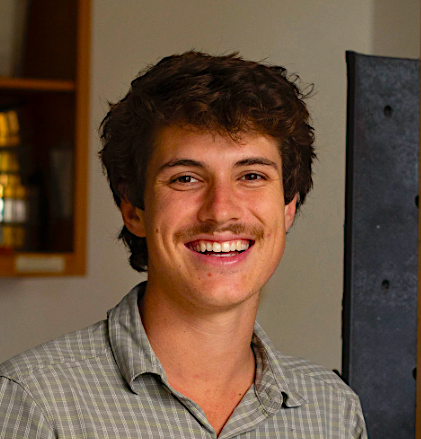
NC Sea Grant and APNEP Name New Joint Fellow
Joshua Himmelstein, a Ph.D. student in the University of North Carolina at Chapel Hill’s Institute of Marine Sciences, is the recipient of the 2022 joint fellowship from North Carolina Sea Grant and the Albemarle-Pamlico National Estuary Partnership. Himmelstein will install sensors across coastal North Carolina marshes to study sediment delivery.
“This project will provide novel information on how sediment is distributed across saltmarshes, helping us to better understand the vulnerability of this important coastal habitat to sea-level rise,” says Tim Ellis, APNEP’s quantitative ecologist.
Himmelstein works with Antonio Rodriguez, coastal geologist at IMS. Rodriguez says that tidal creeks across coastal North Carolina are “filling in with sediment” at a time when many of the adjacent marshes are losing elevation relative to sea level.
John Fear, deputy director of North Carolina Sea Grant and the North Carolina Water Resources Research Institute, says Himmelstein’s project helps address an ongoing mystery in marsh dynamics. “Coastal marshes are an important nursery area for estuarine species and an extremely productive ecosystem,” Fear adds.
The joint fellowship, now in its sixth year, supports graduate students from institutions based in North Carolina who conduct applied research within the North Carolina portion of the Albemarle-Pamlico National Estuary Partnership region.
Albemarle-Pamlico National Estuary Partnership
— Lauren D. Pharr
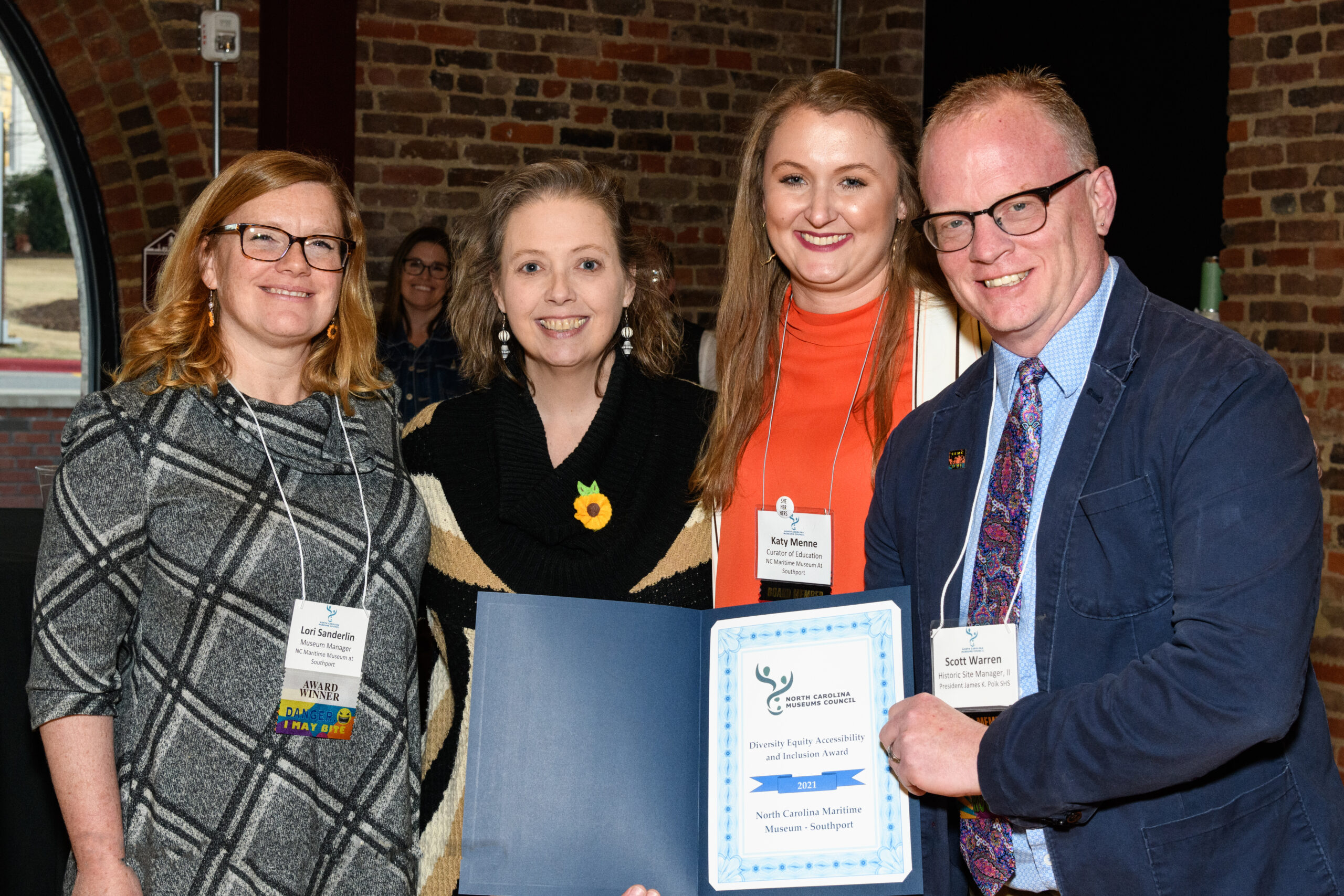
Southport’s Maritime Museum Wins Inclusion Award
North Carolina Museums Council has named the N.C. Maritime Museum at Southport the recipient of the 2022 Diversity, Equity, Accessibility, and Inclusion Award for its work last year to make the museum more accessible for patrons of all ages and abilities.
In particular, the museum’s director Lori Sanderlin and curator of education Katy Menne introduced a semi-guided, multi-lingual tour, as well as tactile maps, to accommodate deaf visitors and people with low vision or total blindness.
“Having the museum selected for this award is indescribable,” Menne says. “This award is all thanks to the support of the Southport Lions Club and N.C. Department of Health and Human Services.”
The N.C. Maritime Museum at Southport tells the story of the Cape Fear region and its people. The museum shares tales of pirates and pillage, blockade running and riverfront archaeology, and other nautical adventures.
“I am so pleased with the changes at the museum over the past four years,” Sanderlin adds. “We really want the museum to be a place in the community where visitors and locals see it as a welcoming space for all people to learn and enjoy maritime history.”
N.C. Maritime Museum at Southport
— from a story by the North Carolina Department of Natural and Cultural Resources

New Fellows Investigate Flooding, PFAS, and More
Five North Carolina graduate students recently began new coastal and water resource fellowships. North Carolina Sea Grant and the North Carolina Water Resources Research Institute are supporting four students’ research projects, and the state’s Urban Water Consortium is funding a fifth.
Topics include PFAS removal, flooding, a potential new source of drinking water, and oyster reef breakwater designs.
“This group of projects will provide much-needed insight for several grand challenges facing our state,” says John Fear, deputy director for North Carolina Sea Grant and North Carolina Water Resources Research Institute (WRRI). “The quality of proposals and projects generated by our state’s universities continues to impress me.”
This year’s fellows currently study at four North Carolina universities:
- Emine Fidan is a doctoral student in biological and agricultural engineering at NC State University. Her advisor is Natalie Nelson, and her project is “Advancing Understanding of Flood Water Quality Distributions and Drivers through Statistical Modeling.”
- Tiffany VanDerwerker is a doctoral student in marine, earth, and atmospheric sciences at NC State. Her advisor is David Genereux, and her project is “Assessing Water Quality in the Upper Cape Fear Aquifer, a Potential Alternate Drinking Water Source for Chemours-Area Residents.”
- Lauren Grimley is a doctoral student in earth, marine, and environmental sciences at University of North Carolina at Chapel Hill. Her advisor is Antonia Sebastian, and her project is “Determining the Relative Contribution of Nuisance Flooding to the Risk Profiles of Estuarine Communities Under Current and Future Climate Conditions.”
- Georgette Tso is a doctoral student in coastal studies at East Carolina University. Her advisor is Siddharth Narayan, and her project is “Integrating Hydrodynamic and Ecological Modeling to Optimize Oyster Reef Breakwater Designs for Ecological Success and Coastal Resilience Benefits.”
- The Urban Water Consortium, which WRRI facilitates, is supporting a fellowship for Holly Haflich, a doctoral student in environmental sciences and engineering at University of North Carolina at Chapel Hill. Her advisor is Orlando Coronell, and she will be researching “PFAS Removal from Natural Water through Electrodeionization Equipped with Novel PFAS Selective Resins.”
Past recipients of the joint fellowship from North Carolina Sea Grant and the North Carolina Water Resources Research Institute have included several noted researchers, such as Austin Gray, whose latest study we highlight on page 45 of this issue.
North Carolina Sea Grant’s funding opportunities
about the Urban Water Consortium
— Justin Lindemann
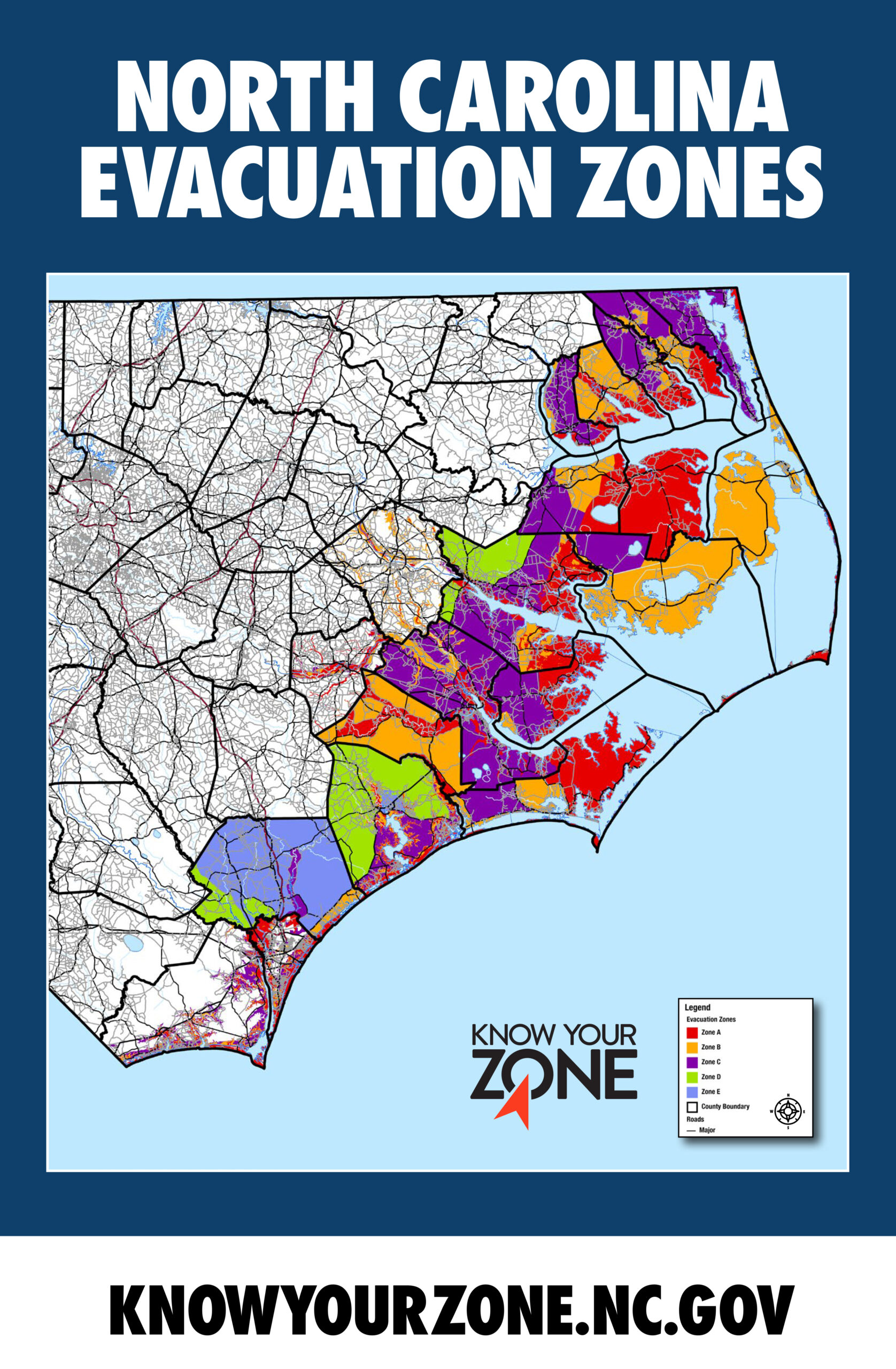 Hurricane Season Is Here: Know Your Zone
Hurricane Season Is Here: Know Your Zone
The Atlantic hurricane season runs from June 1 to November 30 and includes an area covering the Atlantic Ocean, the Caribbean Sea, and the Gulf of Mexico. NOAA reports that for the last 30 years, the Atlantic season has averaged 14 named storms, seven hurricanes, and three major hurricanes.
The first named storm usually forms in mid to late June, the first hurricane in early to mid- August, and the first major hurricane in late August or early September.
Residents and visitors to North Carolina’s coast can refamiliarize themselves with evacuation zones and routes by consulting the resources below.
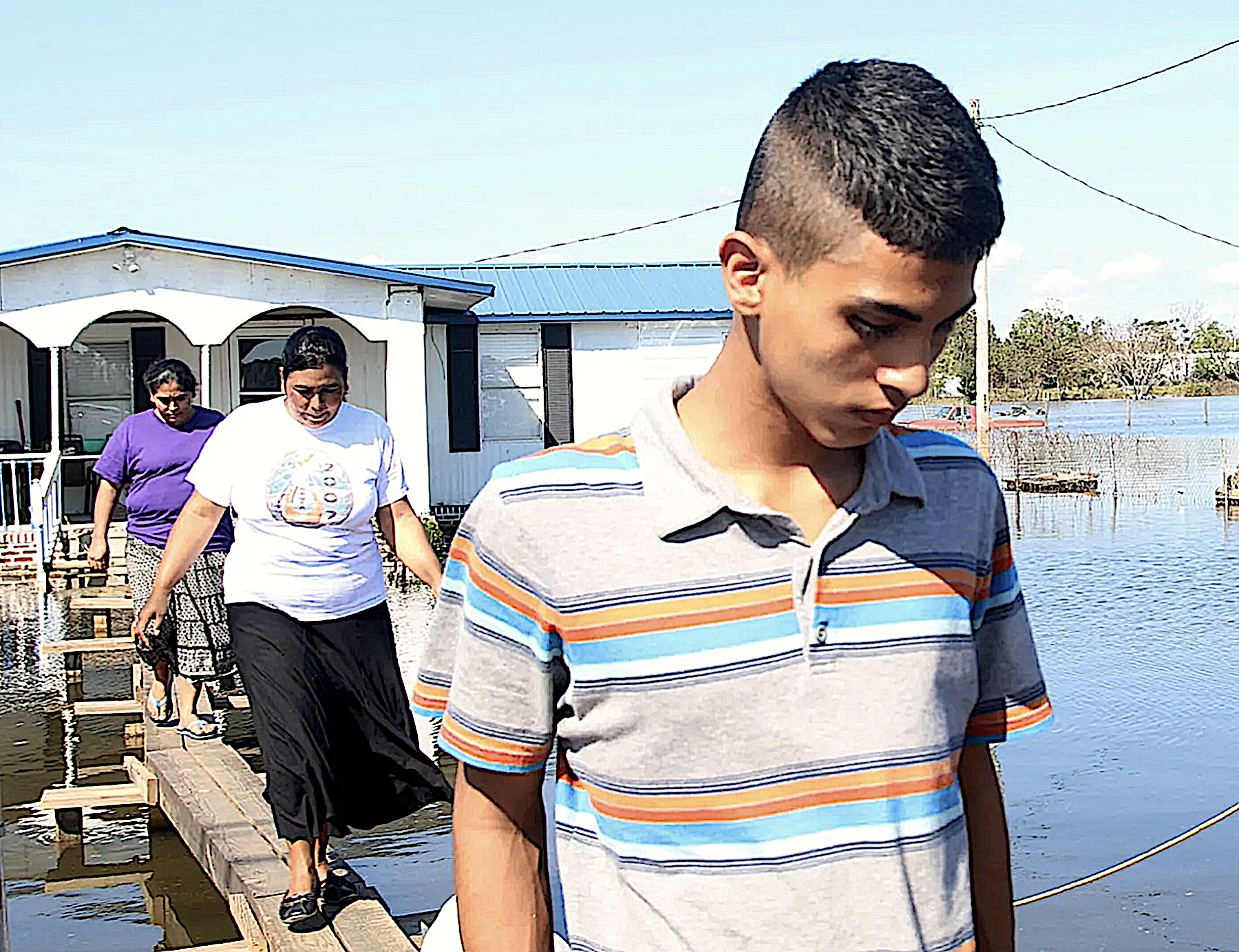
Online Guide Offers Resources in Spanish for Hurricane Season
In conversation with members of the Enlace Latino NC team, people in the Latino and Latina community who were affected by hurricanes reported that language barriers and the lack of accessible information hampered prevention and recovery efforts. After listening to their needs, Enlace Latino NC has launched Prepárate NC, an online guide with resources for the hurricane season in Spanish.
Prepárate NC provides practical and educational tools to help mitigate the great risks that the Latino and Latina community faces from the impact of hurricanes. The online guide provides resources designed to be useful before, during, and after hurricanes hit, including practical recommendations about how to reduce damage to the home, the most convenient evacuation routes, and how to purchase insurance that will save thousands of dollars on repairs.
In addition, Prepárate NC includes directions to shelters, instructions on what to do in a power outage, and how to respond if the streets are flooded. The site also includes post-storm tips on returning home safely, doing repairs, collecting flood insurance, accessing temporary housing, and seeking assistance from both the state and non-governmental organizations.
— adapted from a press release from Enlace Latino NC
Demand Rises for Native Plants
Demand for native plants has increased as more people plan for nature-enhancing landscapes. But is the industry poised to deliver?
At a presentation at the Green & Growin’ education conference in Greensboro, North Carolina Sea Grant’s Jane Harrison pointed to findings from a survey of the state’s plant nurseries. Sea Grant’s Coastal Landscapes Initiative (CLI) sponsored the survey.
A mix of different-sized commercial plant growers in North Carolina responded, says Harrison, coastal economics specialist for Sea Grant. The majority of growers reported offering a mix of both native and non-native species. Most (67%) said demand for native plants has increased over the last five years, while less than one-third reported demand stayed the same.
Growers also named their top five native plants, based on sales. Southern wax myrtle, native hollies, and oaks topped their lists. Virginia sweetspire, pink muhly grass, milkweed, river birch, dogwood, and Joe Pye weed also were common.
In addition to Harrison, the team that developed the survey and analyzed results included North Carolina Sea Grant’s Gloria Putnam, N.C. Cooperative Extension’s Tanya Lamo and Lloyd Singleton, and Kathy Mitchell of Coastal Roots Garden Design.
— adapted from the North Carolina Native Plant Society’s story

